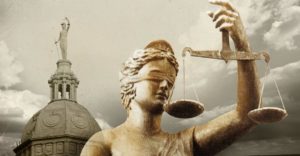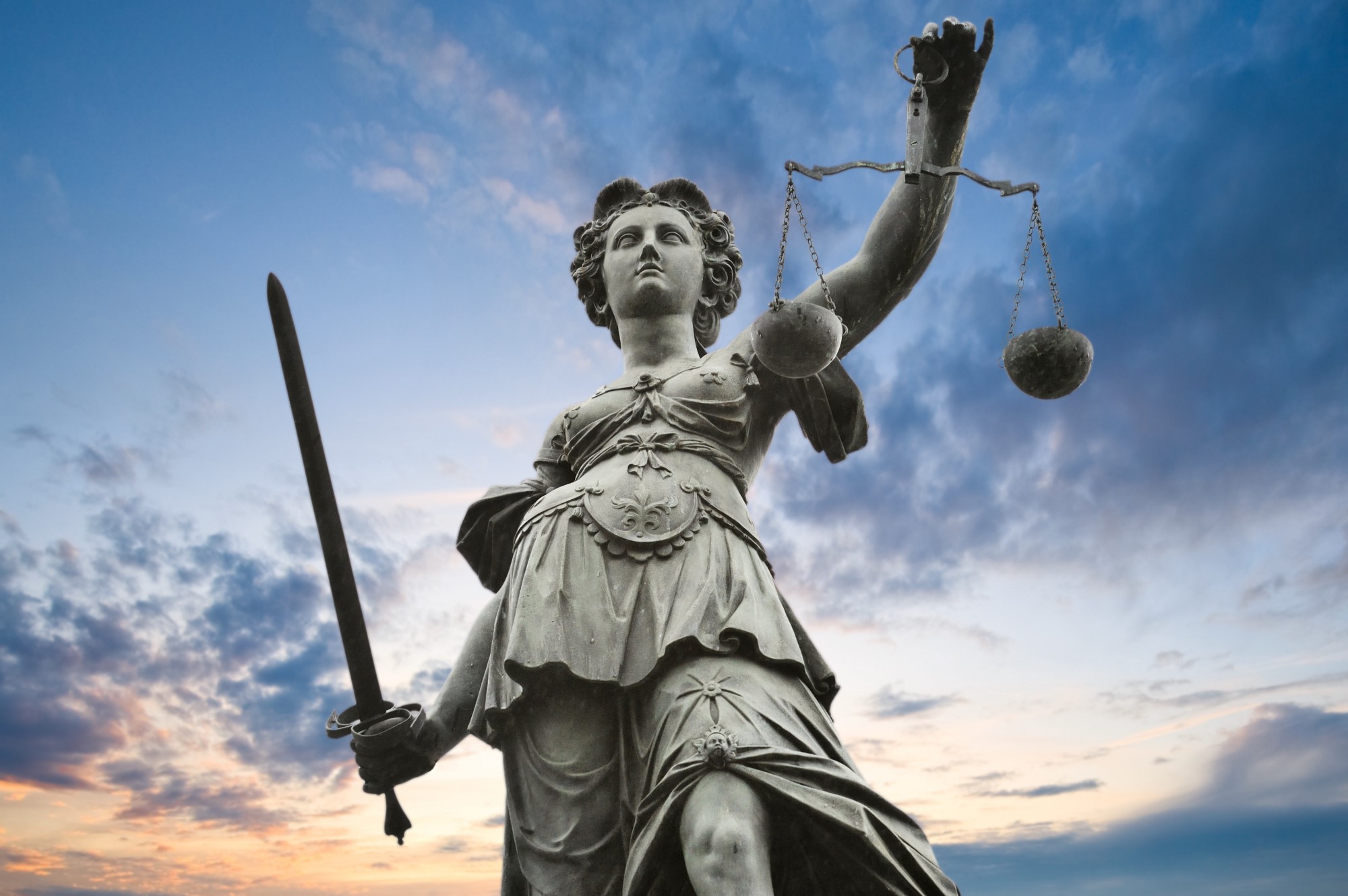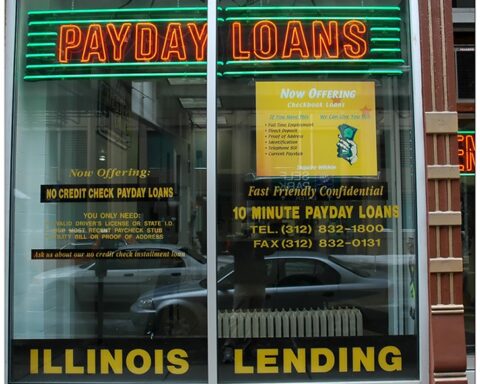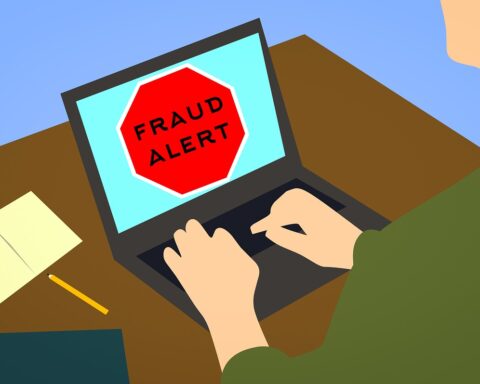I was reading an article the other day about the Kavanaugh/Ford hearing. That article was written by a former attorney who is a libertarian leader of sorts, whose work I often appreciate. However, in this instance the author is all over the place, and I believe his analysis – which is similar to the analysis of a lot of other writers and commentators – needs to be addressed. The article I’m responding to can be found here at the first link below. Underneath that link are quotes from the article, quotes from other sources, and my responses.
First Link.
The article states:
Kavanaugh continually emphasized that Judge had sent in a letter denying that the assault had taken place, under what
Kavanaugh said was “penalty of felony.” I could be wrong but I seriously doubt that an unsworn letter subjects someone to a felony perjury indictment.
Incorrect. Even CNN knows this, as discussed in this link:
The relevant federal statute states:
… whoever, in any matter within the jurisdiction of the executive, legislative, or judicial branch of the Government of the United States, knowingly and willfully—
(1) falsifies, conceals, or covers up by any trick, scheme, or device a material fact;
(2) makes any materially false, fictitious, or fraudulent statement or representation; or
(3) makes or uses any false writing or document knowing the same to contain any materially false, fictitious, or fraudulent statement or entry;
shall be fined under this title, imprisoned not more than 5 years…
With respect to any matter within the jurisdiction of the legislative branch, subsection (a) shall apply only to… (2) any investigation or review, conducted pursuant to the authority of any committee, subcommittee, commission or office of the Congress, consistent with applicable rules of the House or Senate.
There have been a number of high profile instances of people being charged with a crime for lying to government officials while they were not under oath. Michael Flynn, for example.
Martha Stewart as another example.
This article discusses the federal statute in even more detail:
The article I am responding to also stated:
One of the most fascinating aspects of the hearings was when Kavanaugh testified that he had not watched Ford’s testimony because he had been working on his own statement. I thought: If someone is making up a story about you, wouldn’t you want to watch her testimony so that you can show why and how she is lying?
That quote made me want to ask the author if he had followed the Kavanaugh/Ford situation at all leading up to the hearing. Ford’s team explicitly stated that they wanted Kavanaugh to testify first so that he couldn’t listen to her testimony. THAT is why Kavanaugh emphasized not listening to her testimony. See here.
And here.
The article I’m responding to also stated:
Some of the Republican panelist’s suggested that since it is simply a matter of “he‑said, she‑said,” Kavanaugh should be confirmed. They are saying that Ford failed to overcome the principle of “the presumption of innocence” that attaches to criminal prosecutions…
They miss two important points. First, this isn’t a criminal proceeding. It’s a nomination process. Second, when two boys force a girl into a room and assault her, it is unlikely that there is going to be another witness in the room. The very nature of this type of crime is the lack of corroborating evidence. Who else but the people in the room know what happened? That’s when things turn on the credibility of the witnesses inside the room. And again, that’s where Kavanaugh has a big problem. Ford’s demeanor and testimony had truth written all over them.
That is a strange position for the author to take. If you read his entire article, you’ll note that he spent a large portion of the article analyzing the situation in light of trials, credibility of witnesses in trials, demeanor in trials, etc… And THEN he decides to argue that due process protections aren’t relevant because the hearing isn’t a criminal proceeding?
 The author needs to pick one. He can’t have it both ways. Neither Ford nor Kavanaugh would have acted exactly the same in a trial. Being a former trial attorney, the author knows that.
The author needs to pick one. He can’t have it both ways. Neither Ford nor Kavanaugh would have acted exactly the same in a trial. Being a former trial attorney, the author knows that.
As to corroborating evidence… of course there isn’t any corroborating evidence. Ford waited THIRTY SIX YEARS to bring it up.
Statutes of limitations are laws that prevent the filing of civil or criminal claims after a certain period of time passes. Those criminal statutes of limitations exist primarily to protect people being accused of crimes against specious and questionable allegations years or decades after the fact. Those protections are important because evidence with which the accused could defend himself is no longer around. For example, witnesses who might have remembered something that could have exonerated the accused don’t remember anymore.
And frankly, peoples’ memories suck. Especially after 35 years. Dear reader, I have news for you… some of your own memories are likely fake/false.
Even when the person has very high confidence in their accuracy, a person’s memories can be completely wrong:
When the psychologists rated the accuracy of the students’ recollections for things like where they were and what they were doing, the average student scored less than three on a scale of seven. A quarter scored zero. But when the students were asked about their confidence levels, with five being the highest, they averaged 4.17. Their memories were vivid, clear—and wrong. There was no relationship at all between confidence and accuracy.
In extreme instances, there are cases where people remember committing crimes they could not possibly have committed AND CONFESSED TO THOSE CRIMES.
One other point about memories: A significant number of people have been convicted on the basis of eyewitness testimony and then subsequently were found to be not guilty of the crime based on DNA evidence. How can this happen? It can happen because eyewitness testimony is significantly less reliable than people believe. For example:
Over the past quarter‑century, more than 1,400 people convicted of serious crimes have been proved innocent, according to the University of Michigan Law School’s National Registry of Exonerations. But why were these people wrongly convicted? In a great many cases, one significant factor was faulty eyewitness identifications.
Eyewitness testimony can be extremely powerful. When a witness with no motive to lie swears under oath that he or she personally saw a defendant commit a crime, it is hard not to believe the testimony. But in recent decades, extensive scientific research… have identified a number of factors that can lead an eyewitness to make a mistake…
Some of these factors, such as poor lighting or distractions, may seem obvious. But others, such as the effect of stress, are less so. Still other factors — such as the psychological influence of a police officer’s body language as an eyewitness views a lineup, or how a witness’s recollection of a person in a lineup can merge over time with memories of the original event — are so subtle that studies are only beginning to reveal their effects.
When judges and juries lack awareness of the factors that can affect the accuracy of eyewitness testimony, they can make mistakes…
Careful studies have demonstrated that, regardless of the level of certainty an eyewitness expresses at the time of original identification (which itself may be affected by numerous factors), a witness’s confidence in the correctness of the identification steadily increases over time. This occurs for psychological and cognitive reasons that have nothing to do with the accuracy of the identification, such as reinforcement of a witness’s beliefs by law enforcement and accounts of events promulgated by attorneys and news media.
Read more here.
But let’s go back to the issue of statutes of limitations. Significantly, the statute of limitations on the alleged crimes against Ford ran a long time ago – when the alleged offenses were committed, the statute of limitations was one year. So there will never be a criminal proceeding/trial at which rules of evidence and criminal procedure would apply and in which Kavanaugh could actually defend himself. Additionally, if this were actually a criminal proceeding, Ms. Ford would have faced a blistering, days long cross‑examination. It would have included questions like the ones found at this link.
Questions like that would have resulted in a rather different hearing, wouldn’t they? Might Ford’s demeanor have been different if she were actually challenged on her claims instead of having softball questions thrown in her direction?
If this were a criminal proceeding, Kavanaugh wouldn’t have had to testify at all. He volunteered to do it in front of the Senate to clear his name. In fact, he DEMANDED to be given a hearing well before the Senate gave him one.
Incidentally, under current Maryland law, even if the statute of limitations hadn’t expired, Ms. Ford’s evidence – which is essentially only her accusations – isn’t even sufficient to get a criminal complaint filed against Kavanaugh. Because the criminal rules in Maryland require that a charging document contain:
… a concise and definite statement of the essential facts of the offense with which the defendant is charged and, with reasonable particularity, the time and place the offense occurred.
Ms. Ford can state neither the date/time, or the location that Kavanaugh allegedly assaulted her.
Which brings up a question: I can understand how – after years or decades – a person would forget the exact day and time that an assault occurred. But how does one forget the LOCATION their assault occurred?
Again, Ms. Ford can’t remember when the alleged assault occurred. That’s EXACTLY the kind of lack of detail that statutes of limitations are designed to protect defendants from. Think about it… if Ford gave a specific date on which the alleged incident occurred, then Kavanaugh could… oh, I don’t know… LOOK AT HIS CALENDAR AND SEE IF HE WAS IN TOWN ON THAT DATE OR NOT. He might even have dated photos of being entirely somewhere else on a specific date Ford alleged he did that to her.
But Ford doesn’t remember. And so Kavanaugh can’t disprove her allegation with his calendars or other evidence that might show where he was when the alleged offense occurred. Yet the author of the article I’m responding to is fine with that. Because hey, this isn’t a criminal proceeding.
There are two other important things to consider – the first of which was not addressed in the article being addressed:
First, many have made a big deal of the fact that Ms. Ford “passed” a polygraph (“lie detector”) test. The same people have made a big deal of the fact that Judge Kavanaugh hasn’t taken a polygraph test. Both are meaningless facts – and would also be meaningless if Ms. Ford has “failed” the test… and would be meaningless if Kavanaugh took the test, regardless of whether he “passed” or “failed”. In spite of what movies and TV shows would have you believe, it’s a meaningless fact because polygraph tests are quite inaccurate. That is not in dispute. Ms. Ford, as a psychology professor, almost certainly knows that. After all, the official position of the American Psychology Association is that polygraphs are unreliable.
The accuracy (i.e., validity) of polygraph testing has long been controversial. An underlying problem is theoretical: There is no evidence that any pattern of physiological reactions is unique to deception. An honest person may be nervous when answering truthfully and a dishonest person may be non‑anxious. Also, there are few good studies that validate the ability of polygraph procedures to detect deception. As Dr. Saxe and Israeli psychologist Gershon Ben‑Shahar (1999) note, “it may, in fact, be impossible to conduct a proper validity study.” In real‑world situations, it’s very difficult to know what the truth is.
A particular problem is that polygraph research has not separated placebo‑like effects (the subject’s belief in the efficacy of the procedure) from the actual relationship between deception and their physiological responses. One reason that polygraph tests may appear to be accurate is that subjects who believe that the test works and that they can be detected may confess or will be very anxious when questioned…
For now, although the idea of a lie detector may be comforting, the most practical advice is to remain skeptical about any conclusion wrung from a polygraph.
Additional information concerning the inaccuracy of lie detectors can be found here.
Because polygraphs are inaccurate, the results of a polygraph test are generally inadmissible in court unless both parties agree to the results being admitted. Given the inaccuracy, no competent attorney would recommend to a client accused of a crime that the client take a polygraph test to “prove” his innocence. And here’s why…
If the client accused of a crime “passed” the polygraph, the prosecuting attorney – who knows that polygraphs are of questionable accuracy – would just assume that the accused had somehow managed to “game” the polygraph and pass it even though the accused was lying. The “passing” result would not be admissible in court. So the jury would never hear it. And if the accused “failed” the polygraph, the prosecutor would take that as evidence that the accused is guilty of the crime.
So there’s no reason that Kavanaugh should EVER agree to take a polygraph. I would certainly – in 100% of cases in which a client of mine were accused of a crime – advise them NOT to take a polygraph.
An interesting point: Ms. Ford and/or her attorney were and are aware that polygraphs are unreliable – attorneys all know that fact. The field of psychology studies things like polygraphs. However, Ms. Ford and/or her attorney are certainly aware that the general public believes that polygraphs ARE reliable. As such, they arranged for Ms. Ford to take a polygraph test without announcing that she was taking it. If Ford “passed” the test, they would present the results as evidence “proving” that Ford was telling the truth. And if Ford “failed” the test, they simply wouldn’t ever admit that Ford had taken the test, much less that she had “failed” the test.
But the result was and is irrelevant. Ford could be lying if she “passed” the test, and Ford could be telling the truth if she “failed” the test.
Finally, the article I’m responding to states:
During those 12 years, I saw lots of witnesses testifying in court. I don’t think I have ever watched a more credible witness in all my life than Christine Blasey Ford. She came across as honest, truthful, and genuine.
So what? The odds are that the author is no better able to judge credibility and truthfulnes of a witness than anyone else is. And no one is any good at it. See here:
… our ability to identify a lie is poor — no better than chance, in fact. “The best estimate, and that’s from a lot of studies all accumulated, is that we’re about 54 percent accurate,” she told me. “That’s about equivalent to flipping a coin.”…
Take people whose job it is to professionally detect lies — judges, police officers, customs agents. Studies show they believe themselves to be better than chance at spotting liars. But the same studies show they aren’t, Alcock said. And that makes sense, he told me, because the feedback they get misleads them.
We analyze the accuracy of deception judgments, synthesizing research results from 206 documents and 24,483 judges. In relevant studies, people attempt to discriminate lies from truths in real time with no special aids or training. In these circumstances, people achieve an average of 54% correct lie‑truth judgments, correctly classifying 47% of lies as deceptive and 61% of truths as nondeceptive.
 In closing, it is certainly possible that Ford is telling the truth. And it is possible that she isn’t. But we’re not going to know either way by listening to her speak for an hour or two. That’s why corroborating evidence is necessary. And she hasn’t provided ANY. Not a single witness to confirm any part of her story.
In closing, it is certainly possible that Ford is telling the truth. And it is possible that she isn’t. But we’re not going to know either way by listening to her speak for an hour or two. That’s why corroborating evidence is necessary. And she hasn’t provided ANY. Not a single witness to confirm any part of her story.
Maybe she’s telling the truth. But the burden should be on HER to prove it. If her 36 year delay in bringing up the issue means that she now has no evidence to present in addition to her allegation, then that’s on her. She should have brought it up sooner. Bringing it up sooner would have also likely have given Judge Kavanaugh more options to defend himself. From an evidentiary perspective, waiting 36 years to raise the issue is unfair to BOTH of them.
In our legal system, the accused is the one entitled to due process protections. The burden of proving that a crime was committed falls on the state, who chooses whether or not there is sufficient evidence to prosecute the crime. The state’s case is primarily based on the evidence that the alleged victim can provide. In this case, Ms. Ford has not provided sufficient evidence to prove beyond a reasonable doubt that Judge Kavanaugh committed a crime. In fact, Ms. Ford hasn’t even provided sufficient evidence to support a charge against Judge Kavanaugh.
That does not, of course, mean that the offense didn’t happen. But the evidence that has been presented is far from sufficient to prove that the offense happened. And as noted previously, no criminal charge can be filed in this situation because the statute of limitations has already run.
So we’re left with a kangaroo court hearing which doesn’t provide due process protections to the accused… and which is filled with political grandstanding on both sides. The left is desperate to prevent Kavanaugh’s confirmation because they’re afraid that Supreme Court Justice Kavanaugh will be the swing vote that could overturn Roe v. Wade. The irony is that – if Kavanaugh is eventually confirmed – the left’s tactics of throwing multiple sexual allegations at Kavanaugh at the 11th hour is likely to result in him being less receptive to leftist positions than he otherwise would have been (Kavanaugh’s record as a Judge shows him to be relatively moderate). And the left has only themselves to blame for that if it happens.
The system is not supposed to work this way.










If he was 17 at the time I
Of the alleged offense it would if true not be a crime but an act of juvenile deliquency.
Credible, earnest and so forth for her testimony? What was the lawyer smoking? Are these the faces of truth? https://heartiste.wordpress.com/2018/09/28/the-satanic-smirk/
Tell me that mask-slip doesn’t show a malicious liar enjoying attention and power.
>> Ford’s demeanor and testimony had truth written all over them.
This notion is my pet peeve of the week.
it’s nice to want to appear to be fair and open minded, and it seems to be low cost to call her comments credible because we think it doesn’t tip the scales since the allegations are unprovable
The rush to label her credible seems to have won the day with everyone. Not too many people will want to contradict it for fear of appearing cold or partisan.
I couldn’t tell either way if she was credible. She was reading from notes and sometimes appeared timid or weak or battered. “Lotsa” (ie almost all) gals know how to pull your sympathy strings. They do it when they’re telling the truth and they do it when they’re manipulating. You could say that one place in particular where you should reserve judgment is when a woman you don’t know is telling a sad story about herself.
I think she was lying through her teeth. Or is insane.
4.5